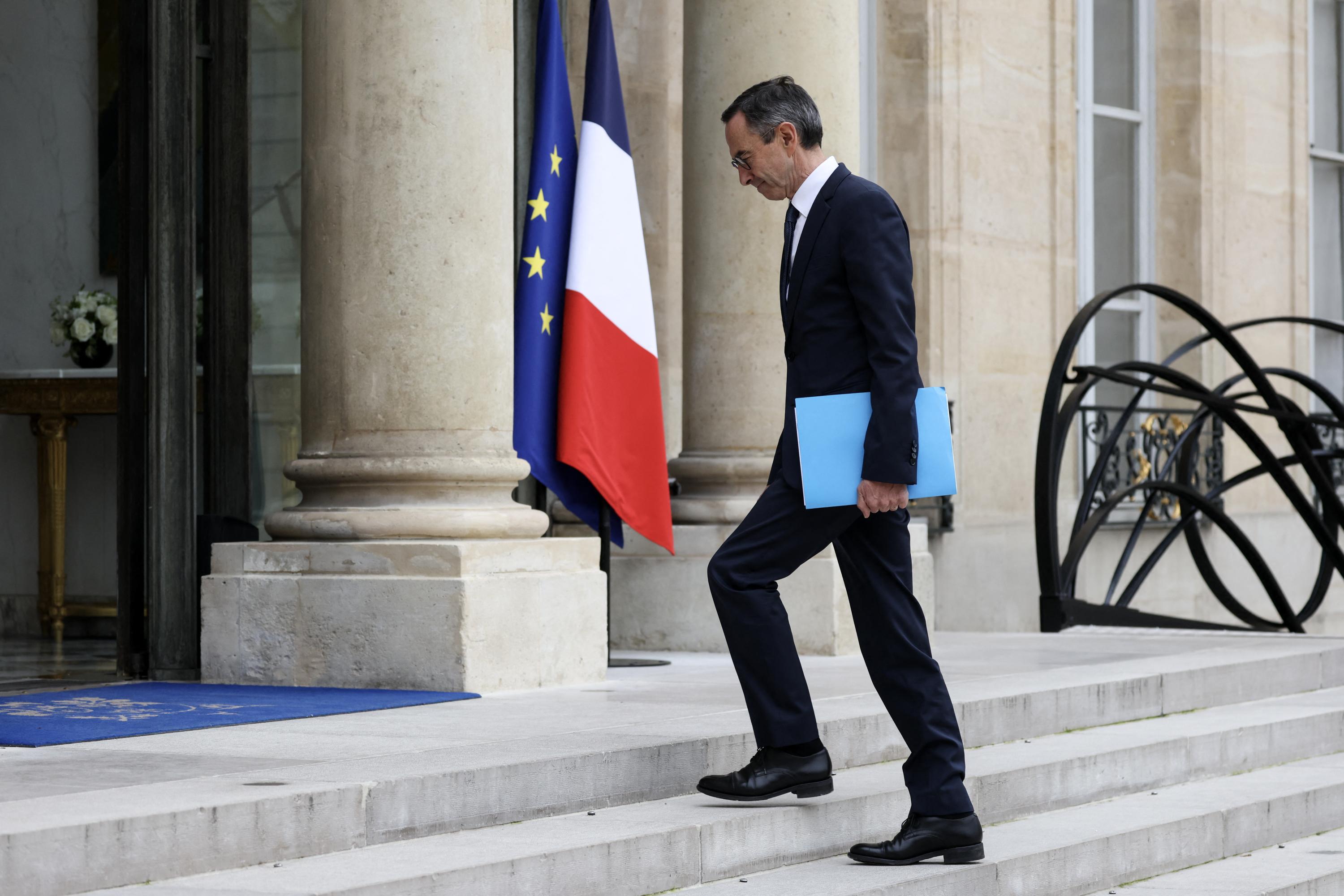Les Républicains Struggle Amid Macron Resignation Calls and Internal Divisions
Les Républicains face internal strife and leadership challenges amid growing calls for Macron's resignation and political instability.
- • Bruno Retailleau signals break from macronism after dismantling Lecornu's government.
- • Jean-François Copé calls for Macron's resignation post-2026 municipal elections, criticizing minority government.
- • Internal divisions persist within Les Républicains over government participation and leadership rivalry.
- • Rassemblement National leads in polls amid central bloc decline and calls for early presidential elections.
Key details
Les Républicains (LR), the French center-right party, are facing a period of profound internal turmoil and leadership uncertainty as political instability shakes France's landscape in late 2025. The party's president, Bruno Retailleau, finds himself increasingly isolated, signaling a potential break from the macronist political sphere. Retailleau's decisive move to dismantle Sébastien Lecornu's government—who had yet to resign—was seen by many within LR as a significant rupture with President Emmanuel Macron's administration. Yet, questions linger about the party's future direction and Retailleau's full comprehension of the consequences of breaking from the current order (ID 97787).
Meanwhile, Jean-François Copé, LR mayor of Meaux, has renewed his call for Macron to resign following the 2026 municipal elections. Copé argued the ongoing minority government setup is dysfunctional and that governance requires a president with an absolute majority to be effective. He warned that if Macron refuses to step down, the political and economic crisis could rapidly worsen, emphasizing the role of mayors as the only stabilizing force in the Republic currently. Internal friction remains evident in LR as the party opts out of government participation, choosing case-by-case support instead, highlighting a rivalry between Retailleau and Laurent Wauquiez. Copé also critiqued the Republican leadership for their inward focus and urged broader party engagement (ID 97747).
Concurrently, political figures like Christian Estrosi of Horizons have joined calls for Macron's immediate resignation and early presidential elections, exposing fractures beyond LR. Estrosi's comments drew criticism from Justice Minister Éric Dupond-Moretti, who branded him the "worst courtier." A recent poll shows the far-right Rassemblement National leading voter intentions at around 34-35%, while the central political bloc suffers diminishing support, now trailing the left to reach the second election round. Gabriel Attal from Renaissance pushed back against resignation calls, warning against destabilizing the country's democratic balance (ID 97721).
These developments underscore a broader crisis enveloping France's centrist and center-right politics. As Les Républicains wrestle with internal divides and strategic uncertainty, the question remains whether they can reposition themselves effectively ahead of looming elections or risk allowing political fragmentation to deepen further.
This article was translated and synthesized from French sources, providing English-speaking readers with local perspectives.
Source articles (3)
Les Républicains en proie aux démons de la division
Bruno Retailleau et les incertitudes de l’après-Beauvau
Source comparison
Call for Macron's resignation timing
Sources disagree on when calls for Macron's resignation are being made.
lefigaro.fr
"Estrosi has joined Édouard Philippe in calling for President Emmanuel Macron's resignation."
lefigaro.fr
"Jean-François Copé urged Macron to plan his resignation following the municipal elections scheduled for March 2026."
Why this matters: Source 97721 states that Estrosi and Philippe are calling for Macron's resignation amid a current political crisis, while Source 97747 indicates that Copé is urging Macron to resign after the municipal elections scheduled for March 2026. This discrepancy affects the understanding of the urgency and context of the calls for resignation.
Latest news
French Economy Minister Calls for Full Insurance Industry Mobilization Amid Devastating Storm Floods
France Boosts Social and Solidarity Economy with New Tools and Potential Tax Reforms in 2026
Saint-Nazaire Mayor Condemns Vandalism of Two Political Offices as Attack on Democracy
Severe Flooding Continues Across Southwest France Amid Ongoing Emergency Measures
Rise in Extreme Right-Wing Political Violence Shakes France Since 2022
2026 French Municipal Elections and Local Debates Reveal National Political Stakes
The top news stories in France
Delivered straight to your inbox each morning.

